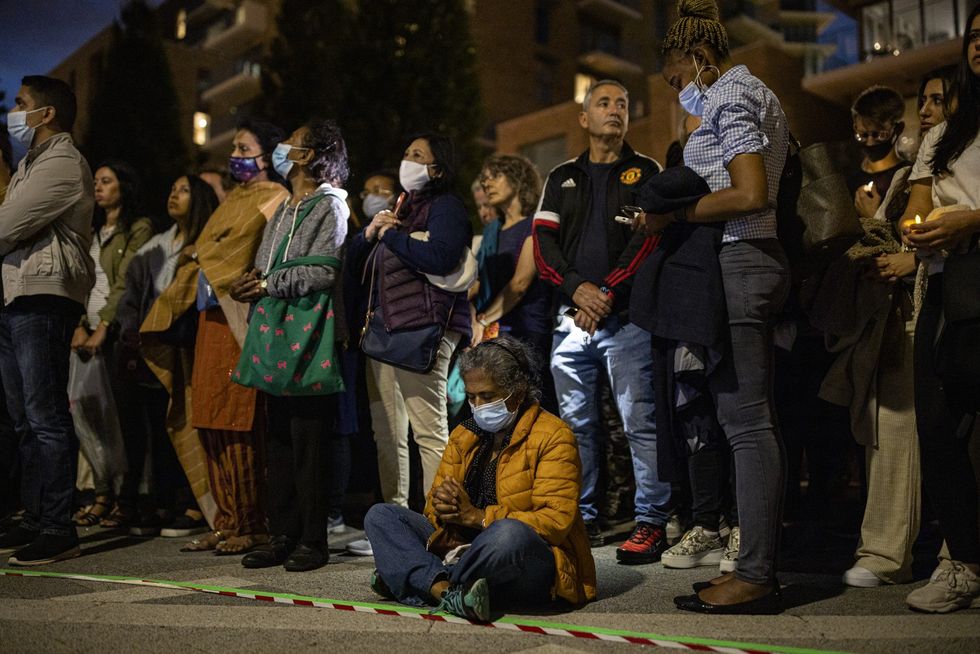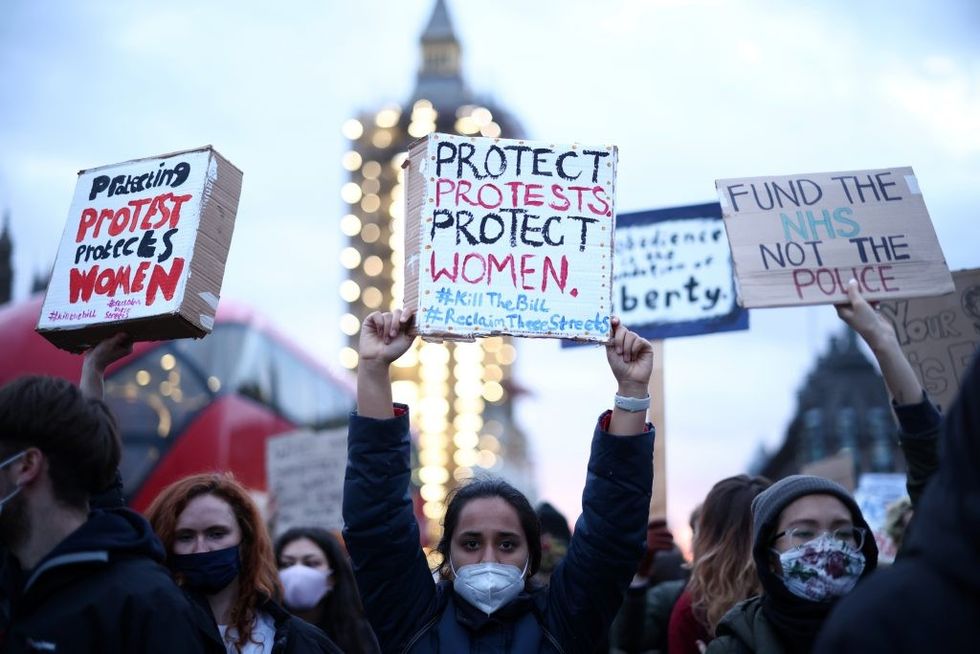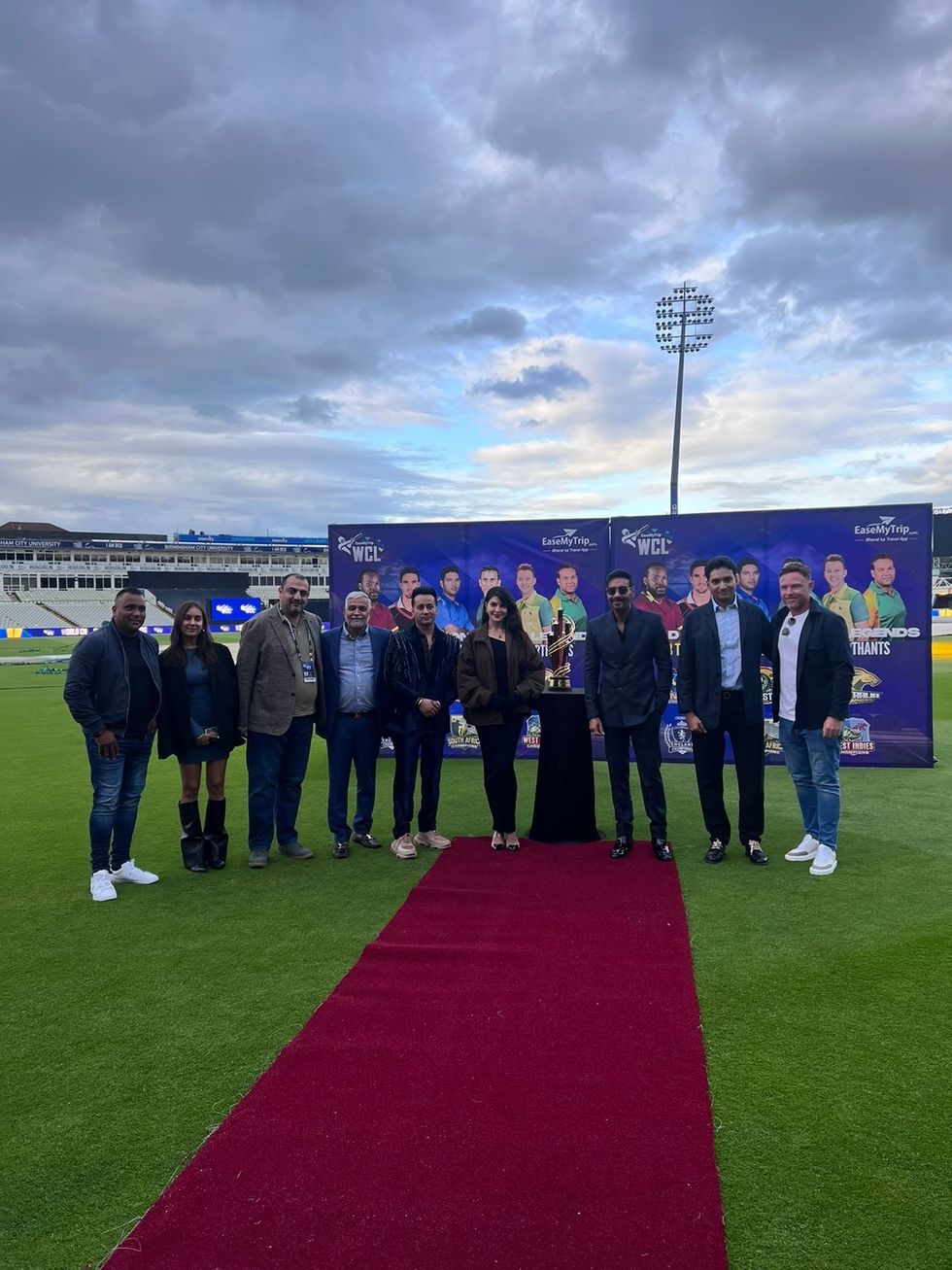CAMPAIGNERS have warned that Asian victims of abuse are “being failed” due to a lack of cultural understanding by authorities, which they said can cause police investigations to “fall apart”.
In interviews with Eastern Eye this week, charity bosses have said police should do more to recognise the specific barriers and safeguarding risks ethnic minority victims face when reporting a crime, as not doing so means there is an increased risk of victims retracting their reports.
One academic said victims are denied justice as police officers “misinterpret, destroy or inaccurately record evidence”.
Their comments follow an outpouring of grief and anger following the murder of Sabina Nessa, a 28-year-old teacher whose body was found in a park near her home in south-east London in September. A 36-year-old man charged with her murder denied the charge in a London court on Tuesday (28).
Nessa’s case has reignited the discussion around the level of violence faced by women and girls, with a new report revealing there are an estimated 1.6 million female victims of domestic abuse in England and Wales in the year ending March 2020. The report, by the Inspectorate of Constabulary and Fire & Rescue Services, said there were 618,000 female victims of sexual assault.
Writing for Eastern Eye this week, Professor Aisha K Gill, PhD, CBE, of the University of Roehampton, a leading criminologist, said in the past two decades that she has worked in the field, she found that prosecution cases often fall apart because police officers “misinterpret, destroy or inaccurately record evidence”.

She confirmed she had made formal complaints regarding these accusations. “They may even fail to gather key evidence in the first place because they deem the accused’s story more credible than the victims,” said Gill, a professor of criminology.
Yasmin Khan founded the Halo Project, a charity which supports victims of honour based violence and forced marriages in the UK. She explained ethnic minority victims do not get to the criminal justice stage due to the lack of understanding by police forces, who fail to apprehend the specific barriers and safeguarding risks BAME victims face when the abusers share the same culture and ethnicity.
“(Investigations fall apart) because police officers haven’t got the understanding and don’t consider the barriers that black and minority ethnic victims of sexual abuse are facing,” she said. “Victims are being failed all the time.”
In a 2020 report, the charity identified nine key failures in police responses to reports of sexual abuse within the ethnic minority community.
This included a disproportionate focus on community impact; lack of empathy from the police; and a failure to understand the “retraumatising effect” of the prosecution process.
“We need to make sure that (authorities are) removing the barriers for victims to come forward and make those disclosures – not put barriers in place for them,” Khan told Eastern Eye.
Natasha Rattu, executive director at charity Karma Nirvana, agreed the criminal justice often discredits victims who delay reporting. “In cases of honour-based
abuse, we know victims very often do retract,” she told Eastern Eye. “(We need) to ensure that when people do come forward and report, we get it right, by engaging with them and improving their confidence.”
“They shouldn’t be feeling that the reason they want to retract is because they don’t feel (authorities) understand. Many victims do retract for those reasons, and that’s entirely unacceptable.”
'Authorities must take abuse claims seriously'
According to government statistics, the number of rape convictions in England and Wales reached a record low in 2020-21. Only three per cent of alleged rapes ended in a conviction.
In a 2013 report by the Home Office, researchers found only around 15 per cent of those who experience sexual violence report the crime to the police.
Aneeta Prem, the founder of Freedom charity, said she has found it takes a “long, long time” before a victim will report a case against a perpetrator. It is vital such reports are always taken seriously by authorities, she said.
“People are very reluctant to report and when they do come forward, they need to be believed,” Prem said.
Khan also noted the emphasis is on the victim – not the offender. “(Women) have to make the complaints, we have to change our direction on an evening when we’re walking home, we have to choose what we ignore, and what we think is improper,” she said. “We’ve been victim blaming for far too long.”
Prem echoed Khan’s sentiments. “I heard one comment about Sabina, asking why she was out in the dark? But it was only 8:30pm (when she was allegedly attacked), it isn’t even that late to be going out. We shouldn’t be blaming women for going out and getting attacked.”
In reaction to the murder of marketing executive Sarah Everard in south London in March, the government vowed to make Britain’s streets safer for women by including increased funding for street lighting and closed-circuit TV.

However, Khan does not believe the government is doing enough. Authorities need to take a preventative approach instead, she said. “We need to ensure we’re understanding the root cause, which I don’t think has been happening.”
Gill has called for an overhaul of the criminal justice system that would ensure steeper penalties for gender-based violence and a focus on early education and prevention. Rattu argued that specialist services such as Karma Nirvana needed to be sustained and prioritised so that the needs of all victims could be tailored to.
Reacting to the news of Nessa’s murder, London mayor Sadiq Khan told Eastern Eye he was “devastated” by her death. “What happened to Sabina is every parent’s nightmare and every woman’s worst fear,” said Khan, who is a father to two daughters. “Her death is a tragedy and I stand with the community in Kidbrooke (in south-east London, where Sabina lived) and with Londoners across our city, united in grief, and united in our determination that justice is done.”
The mayor said City Hall had invested £60.7 million to tackle all violence against women and girls. The funding is being used to reduce waiting lists, keep doors open for vital specialist support services for victims and improve the police response to domestic abuse and violence against women and girls.
“Women and girls in London deserve to feel safe at all times, in every part of our city and I remain committed to making our city safer for them,” the mayor said.
Apsana Begum, Labour MP for Poplar and Limehouse in east London, said the case had filled her with “rage and grief”. “It provides a reminder of the fact that basic safety is not a right afforded to all equally,” she told Eastern Eye. “On average, one woman is killed every three days in the UK – that is one woman too many every day and every year.”
She said the case reminded her of the murders of Everard as well as sisters Bibaa Henry and Nicole Smallman, who were stabbed to death by a then-18-year-old man in north London last June. “These are not one-off or isolated incidents; this sort of violence has been persistent for centuries and decades and it must be ended,” Begum said.
"We cannot turn a blind eye to this public health crisis"
Many others have also made comparisons between Nessa and Everard, who was killed by a police officer in March. Everard’s murder sparked a widespread debate about the safety of women and gendered violence in the UK.
However, Gill said cases involving women of colour do not lead to the same level of public outrage and anger as those involving white women.
“Countless women of colour have died during this epidemic of violence against women,” she said. “We cannot turn a blind eye to this public health crisis.”
Yasmin Khan agreed the reaction to Nessa’s murder should reach the same level of attention. “The outpouring for Sarah Everard was right, but the outpouring for Sabina needs to be echoed in the same way and provide that catalyst for change,” she said.
Rattu added: “They were two women who were murdered by the very same attitudes, fundamentally, and they both deserve to be remembered. We need to
make sure that we don’t have more cases like (the murders of Nessa and Everard).
“We’re seeing it happen more and more, which in the society and day and age we
live in, should not be our reality in 2021.”
In response to Eastern Eye, a National Police Chiefs’ Council (NPCC) spokesman acknowledged the challenges for policing in response to violence against women and girls. “While policing has improved in our response, we are determined to do even better,” they said.
The spokesman noted the drivers of violence, abuse or intimidation are “hugely complex”, highlighting additional challenges such as court backlogs and the increase in investigation of digital devices now required, “which present challenges”.
“There are no easy answers to this problem, but collectively government, policing and the criminal justice system need to keep working together to find ways to swiftly secure justice for victims,” the spokesman said.
The Home Office and the College for Policing did not respond to a request for comment from Eastern Eye.






 A compelling premise, layered and unpredictable charactersAMG
A compelling premise, layered and unpredictable charactersAMG Anyone who enjoys a gripping story with a diverse cast and unexpected twistsHarperFiction
Anyone who enjoys a gripping story with a diverse cast and unexpected twistsHarperFiction








 As WCL enters its second season, Sharma is scaling upwclegends.uk
As WCL enters its second season, Sharma is scaling upwclegends.uk


 Scarlett Johansson opens up about breaking free from early typecastingGetty Images
Scarlett Johansson opens up about breaking free from early typecastingGetty Images  Johansson reflects on her childhood stardom and evolving careerGetty Images
Johansson reflects on her childhood stardom and evolving careerGetty Images  From Avengers to auteur Scarlett Johansson embraces creative control Getty Images
From Avengers to auteur Scarlett Johansson embraces creative control Getty Images